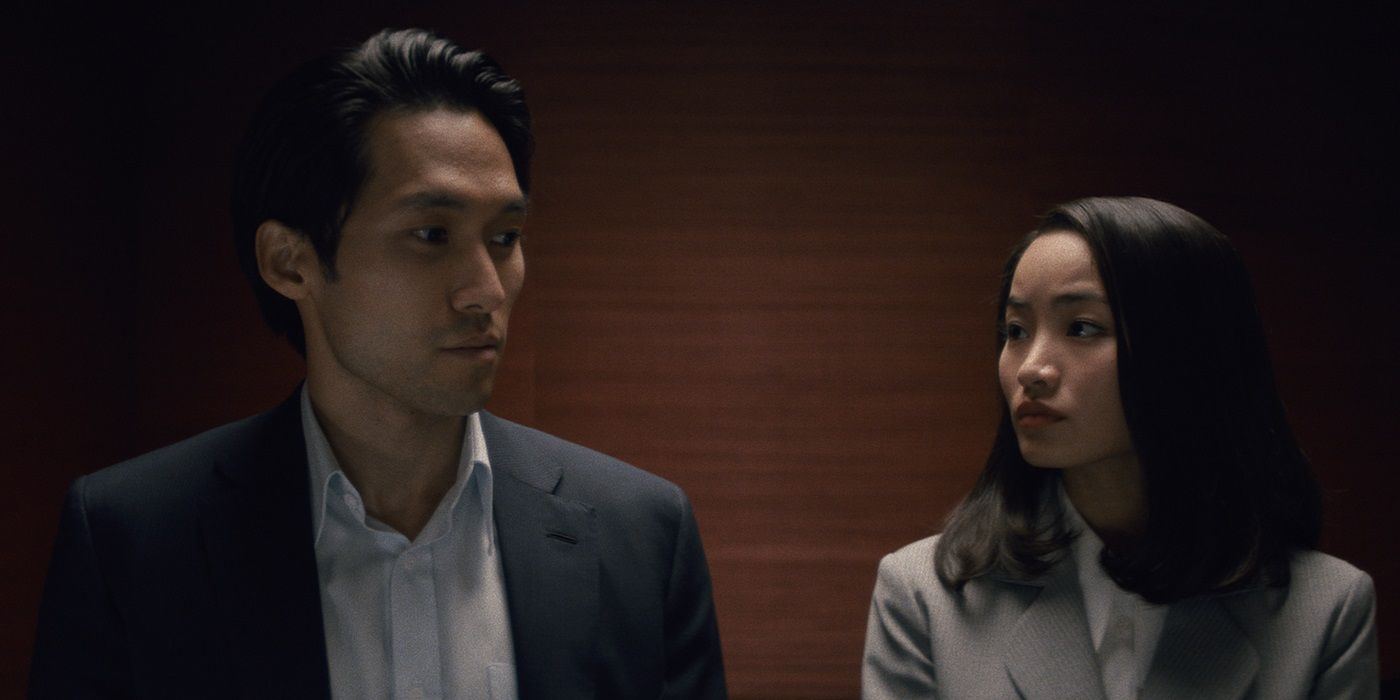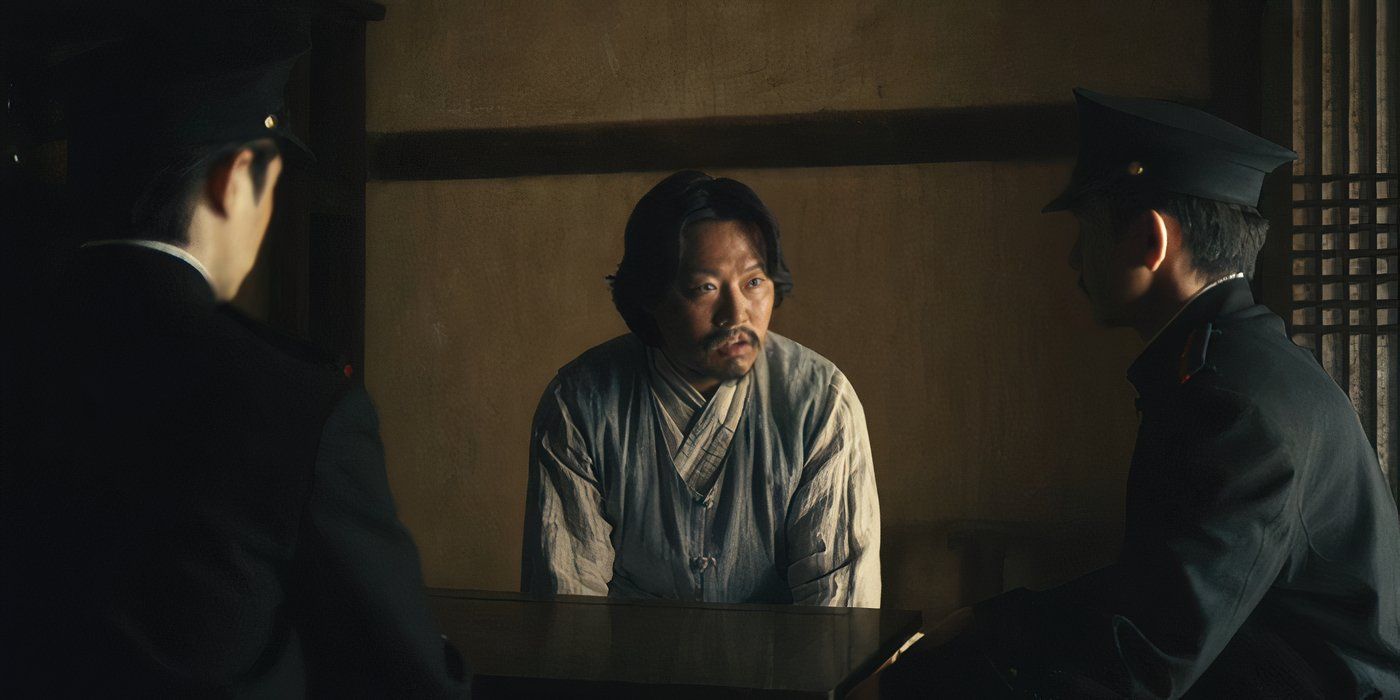Editor’s Note: The following contains spoilers for Pachinko Season 2, Episode 1 as well as details from the book that is used as source material for the series.
Pachinko is back on Apple TV+ with its Season 2 after a stellar eight-episode run in 2022. Picking up from where it left off, Soo Hugh’s Korean-Japanese language drama series continues the story of Kim Sunja (Kim Min-ha/Youn Yuh-jung) and her grandson Solomon Baek (Jin Ha) in Season 2. The opening episode of Pachinko Season 2 picks up the events of the two timelines from where the story was left in Season 1, albeit not without some time jumps. Some new characters, in the form of Kim Kang-hoon’s Noa and Kim Sung-kyu’s Kim Chang-ho, are introduced in the premiere episode of Season 2. But in pacing the story, the creators of the Apple TV+ television series seem to be choosing to expand on the future timeline (set in 1989) at the cost of Sunja and her family’s turbulent journey in mid-twentieth century Japan.
‘Pachinko’ Is Trying To Expand Its Source Material
At the start of Season 2, adult Sunja (Kim Minha) is already facing the pangs of World War II and Japan’s dire situation around 1945. On the other hand, in the distant future, Solomon is seen trying to acquire funding for his own business after his untimely and unceremonious departure from the American firm Shiffley’s in Season 1. However, in the 1940s timeline that the series is currently exploring, the Apple TV+ drama has already chosen to skip some important events from author Min Jin Lee’s source material. As a result, the story of Pachinko’s first timeline seems to be moving faster than its 1980s timeline, not only overlooking important beats of Jin Lee’s story but also losing out on crucial story and character arcs — a reason why Pachinko must dwell on its past more while keeping an eye on the future.
In terms of the book, the 1989 timeline is where the story ends in the book. Pachinko’s Season 1 has pretty much exhausted the source material, covering crucial events from the book, including Solomon’s departure from Shiffley’s and Hana’s (Mari Yamamoto) death. However, there is a lot more to explore in Sunja’s family’s past. Unfortunately, the Apple TV+ series is skipping some of it for a variety of reasons. For instance, the entire storyline about Kim Chang-ho (Kim Sung-kyu) meeting Sunja and Kyunghee and helping her with her kimchi business creates a great reveal in the book. Initially, Kim Chang-ho comes in contact with Sunja looking to conduct business with her, who provides kimchi supply to the restaurant run by Chang-ho. It’s ultimately revealed that Chang-ho was helping Sunja after being ordered by his boss, Hansu (Lee Min-ho). However, the premiere episode of Season 2 just steals the fun from this revelation. Kim Chang-ho is introduced directly at an advanced stage in his interactions with Sunja. As a result, when the episode spills the secret about his association with Hansu, whom Sunja meets for the first time many years later in the episode, it barely leaves any impact.
‘Pachinko’ Season 2 Is Sacrificing Its Past for the Future
Although the series has already killed off Sunja’s loving sister-in-law Kyunghee (Jung Eun-chae) in Season 1 during the 1980s storyline, her role in Sunja’s past has been a crucial one. In Isak’s (Steve Sang-Hyun Noh) absence, Kyunghee remains a pillar of support for Sunja. Without children of her own, Kyunghee had her own burdens to share and eventually, she developed a close relationship with Kim Chang-ho. In what is an important development in the book, the situation between Kyunghee, Chang-ho, and Kyunghee’s husband Yoseb (Han Jun-woo) leads to a very complex exploration of the dilemma existing within Kyunghee’s character and between the ideas of love and marriage — something which Pachinko revisits quite often. Noticeably, Pachinko has not given enough attention to Yoseb before packing him off to Nagasaki, as revealed in “Chapter Nine” of Pachinko. In the source material, Yoseb is a complex character. He and Kyunghee are unable to bear children, and he shares a conflicted relationship with Sunja, who takes charge of the house. Pachinko only explores these conflicts in the passing. Now that Kim Chang-ho is already revealed to be Hansu’s employee, the audience is going to view him differently, even if the series ultimately explores the bond between him and Kyunghee.
‘Pachinko’ Must Focus on All Its Characters Equally
With Pachinko’s increased focus on Solomon (an otherwise minor character in the book), the show might have to skip past important events and character arcs for the sake of pacing. However, the series is losing focus on what makes Pachinko an emotionally charged saga spread across time. In Season 1, the creators made a brave choice by jumping directly to Sunja’s birth and paying little attention to her father, Hoonie’s (Lee Dae-ho) childhood, where the book starts. Sunja’s relationship with her father was a constant source of strength for her when she was struggling to survive in a land that continues to treat her and her family as foreigners. The book revisits the love shared by the father and daughter many times — something completely missing after Hoonie’s death in the series. With Chang-ho potentially facing this similar fate, Pachinko must focus on the other characters as much as they focus on the two protagonists — Sunja and Solomon. To achieve this, Pachinko needs to spend more time on its past. After all, it’s the interactions with the other characters that lend meaning and context to the individual journeys of the central characters and their choices.
While the series seems keen on expanding beyond the book (although there is already a lot of story for the series to explore), it is doing so by sacrificing important characters and story arcs. Let’s not forget how the series has also already killed the possibility of a reunion between Sunja’s mother (Jeong In-ji) and Sunja by suggesting that Yangjin died in Yeongbo and Sunja never met her mother again after leaving for Osaka. Pachinko needs to maintain the message that lies within the broader layers of its story. Pachinko is not a singular historical tale about one family but a retelling of the stories of many lives within the times it tries to capture. If it wants to do justice to the soul of the source material, it needs to look into Sunja’s past with as much affection (and greater commitment considering the vast scope) as it is trying to look into Solomon’s future. Either way, Pachinko has always been far more interesting when exploring the past than the present.
New episodes of Pachinko Season 2 stream every Friday on Apple TV+ in the U.S.
Watch on Apple TV+


